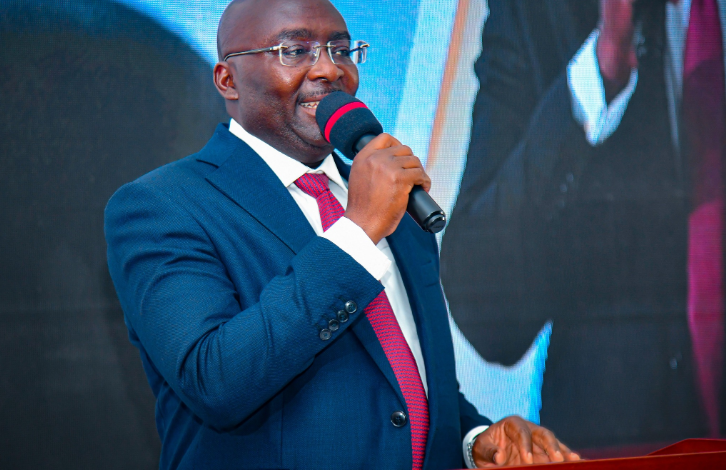Bawumia promises to overhaul Ghana’s tax regime if elected President

The Flagbearer of the New Patriotic Party(NPP) and Vice President, Dr. Mahamudu Bawumia has promised that a new NPP government under his leadership should he be elected President will undertake a comprehensive review of the country’s tax regime.
Speaking at a meeting with the Trades Union Congress (TUC) in Accra, Dr. Bawumia indicated that the current system is outdated and does not serve the country well.
Dr. Bawumia while acknowledging widespread concerns of businesses over high taxes and cost of doing business noted that the current tax system needs a total overhaul to serve the country better.
“I think we’ve worked with this regime for a very long time but all you hear are complaints. From businesses and individuals it is one complaint after the other. So after studying the import duty regime there are two things that I want to do. First of all, I want us to apply the flat tax regime to import duty. The flat tax regime means if you are bringing in spare parts and you have a 40 foot container, we must have the tax duty in cedis for that 40 foot container and when it arrives and its a container and you say it is GHC20,000 that is GHC20,000. You know before a container leaves and you know when it arrives there’s no change because of exchange rate differences. We are charging in Cedis and we are respecting our currency and that is where we are going to go with the flat tax system.
“Because you cannot say that nobody should charge in Dollars but practically we charge in dollars, so you’ve got to set the duty in Cedis because when you charge in dollars, the market people anticipate depreciation, and in anticipation of the depreciation they will add more to the pricing. So you will have an inflationary component of the duty regime. Because not only are they charging for now, they are charging for the future because after they sell they have to go back and then they will be anticipating that maybe by the time I come back this will be the exchange rate will be so. Once you take the exchange rate out of the duty regime, you will get stability in pricing.”




